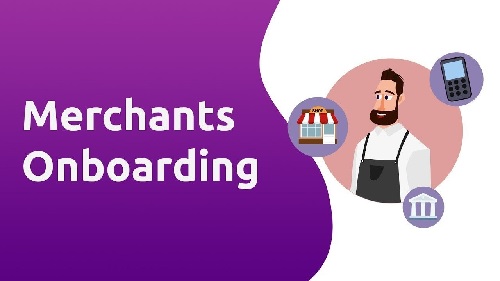Streamlining Merchant Onboarding: Best Practices for Fintech Companies

Merchant onboarding is the key to success for fintech companies just as setting up a new marketplace where each stall owner presents a merchant desperate to sell his ware is for other businesses. An efficient, flawless process ensures that merchants don’t get frustrated and that there is no risk of losing such important partners as them like in the case of non-performing or retailer merchants. A smooth merchant onboarding process helps merchants quickly integrate into the platform, start accepting payments and promote growth of the entire fintech ecosystem.
So what are the principles that should be followed when it comes to merchant onboarding? How can fintech companies make this procedure less complicated? Let’s find out!
The Merchant Onboarding Process Should Be Seamless
Like a well-paved runway facilitates the safe takeoff of an aircraft likewise a systematic merchant onboarding service facilitates quick takeoff for merchants to commence their activities. This lays a solid foundation for long-term success once you optimize such procedures within any financial technology provider.
However, the process of onboarding a merchant involves more than just filling out paperwork – it entails cultivating trust, ensuring compliance and equipping them with the necessary resources for survival. Cumbersome onboarding procedures could result in merchant dissatisfaction, operational bottlenecks and missed opportunities while efficient ones could improve relationships with the merchants leading to the enhancement of a company’s reputation.
Best Practices in Merchant Onboarding within Fintech
1. Simplify Documentation Requirements
Paperwork remains one of the major challenges during merchant onboarding. As much as possible, the requirements for documents should be made more straightforward by ensuring that not all documents required are given to merchants together with automatic processes always available as much as possible. Adoption of e-signatures and online submissions will cut down on back and forth on the documentation process leading to improved efficiency.
2. Implement Automated KYC and Compliance Checks
There can be no successful merchant onboarding process without compliance issues being addressed. Regulatory compliance necessitates that financial technology businesses conduct Anti-Money Laundering (AML) and Know Your Customer (KYC) checks on their merchants, which can be time-consuming though necessary activities for any responsible company.
3. Provide Clear Communication and Support
From onboarding to active operations, merchants take what seems like a maze. Fintech companies can act as a beacon to guide merchants through the entire journey. Providing clear communication, accessible resources, and dedicated support can make a significant difference in how merchants perceive the onboarding process.
Establish a single point of reference by creating a merchant onboarding hub or knowledge base for merchants interested in FAQs, blogs, video tutorials or live chat support services. Such a proactive approach allows merchants to handle problems quickly, hence reducing friction and fomenting a good rapport.
4. Ensure a User-Friendly Interface
The user interface determines how merchants interact with the onboarding process. For instance, if the user interface is tough or nebulous it’s like placing sellers into a confusing land maze where they’ll wander around indefinitely feeling stuck and frustrated. In contrast, a well-designed easy-to-use interface makes onboarding an enjoyable experience.
Make sure that your merchant onboarding platform incorporates step-by-step instructions, real-time feedback indicators, and progress updates. The interface should be simpler, therefore, reducing the probability of errors and increasing satisfaction.
5. Offer Customized Onboarding Services
A one-size-fits-all approach will not suffice for all merchants as different merchants have different needs. Thus, instead of offering a generic onboarding process for all types of businesses, these services should be tailored to meet the specific requirements of various categories such as small businesses, e-commerce sites, etc.
Providing custom onboarding solutions enables fintech companies to address unique pain points, making them feel appreciated throughout the process as well as afterward in the long term.
Awign: A Reliable Partner for Merchant Onboarding Services
For any fintech firm in today’s competitive environment, finding trustworthy partners for merchant onboarding services is critical. In this aspect, Awign which is a work-as-a-service platform has risen among the ranks as far as trustworthiness goes. Awign’s cutting-edge technology and PAN India presence guarantee efficient yet seamless merchant onboarding services.
The Future of Merchant Onboarding
As the fintech industry evolves, so too will the processes surrounding merchant onboarding. Security would therefore be an expected future development into merchant onboarding services. Artificial intelligence (AI) and machine learning (ML) are expected to take over most of the onboarding procedures improving customer experience as well as solving any potential problems that may arise before they happen.
Conclusion: Elevate Your Merchant Onboarding with Awign
For every financial technological company, merchant onboarding acts as a doorway into the future and an easier procedure means everything. Fintechs will therefore enhance customer satisfaction by simplifying paperwork processes, automating due diligence and offering tailor-made packages for different types/sizes of merchants.
Why wait to contact Awign as your partner in merchant onboarding with their expertise in handling big clients? Just hop onto their website today and get going!





